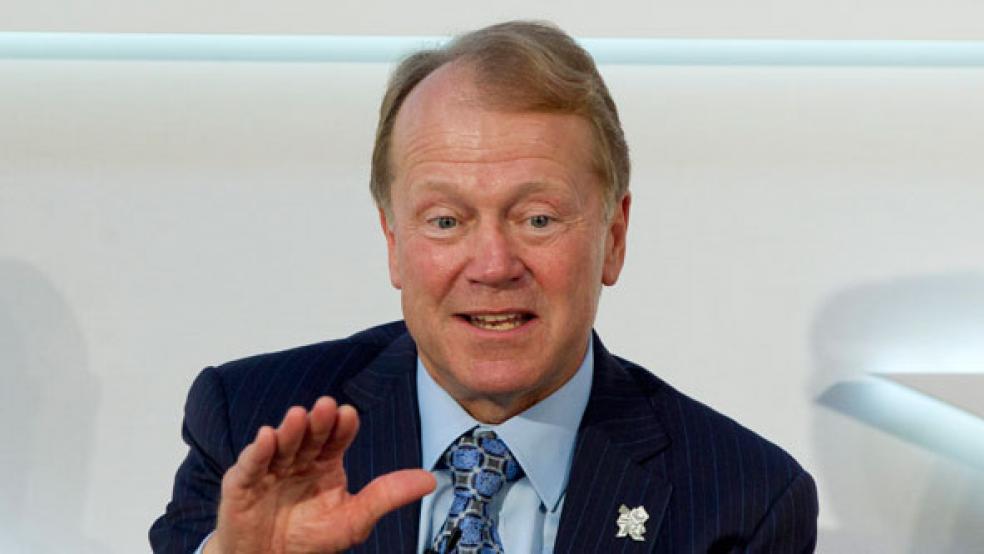As President Obama continues to confer with rank-and-file Republicans and Democrats on Capitol Hill today, a group of prominent CEOs gathered this morning in Washington to offer the president and Congress advice on a wide range of economic and business issues.

The overarching advice emanating from the panel, sponsored by Politico, was that business leaders need far more certainty about fiscal and immigration policy. Some of them say there is huge potential for economic growth if Congress and the White House can agree on a plan to simplify the tax code, pass a new budget, and raise the debt ceiling while avoiding another government crisis.
John Chambers, chairman and CEO of Cisco Systems, contended that the private sector could add nearly 15 million jobs in the next few years and the economy overall could expand by nearly 4 percent if lawmakers would provide certainty for businesses. “Consistency of policy is the No. 1 takeaway,” Chambers said when asked by moderator Jim VandeHei what message he had for Obama and House Speaker John Boehner, according to Politico this morning.
“What we’re doing with the budget is no way to run a company, let alone a country,” John Doerr, a partner with Kleiner Perkins Caufield and Byers, said during the morning panel. “The United States is falling way short in ability and clarity … to grow the economy.” Doerr later mentioned three potential areas of growth:
1. Changes in health care away from the "fee for service model" might bring innovations and economic benefits.
2. Growing interest in online education could improve students' access to college resources — perhaps particularly in California, where the state is weighing an ambitious online education bill.
3. "Breakthroughs in batteries," in particular, could reduce the cost of manufacturing, which would be as "transformational for the economy as the microprocessor was."
"We're still at Day Zero in terms of innovations and changes that can affect" the economy, Doerr said.
House Republicans and Senate Democrats this week unveiled dueling budgets for fiscal 2014 that could not be farther apart in substance and tone. House Budget Committee chairman Paul Ryan’s plan calls for wiping out the deficit within ten years through steep cuts in spending, overhauling some social programs and dismantling parts of the Affordable Care Act.
Senate Budget Committee Chairman Patty Murray’s Democratic plan would spend $100 billion on highway and bridge construction to stimulate the economy and stabilize the deficit by raising and additional $1 trillion in taxes over 10 years and closing loopholes.
RELATED: Dems’ and GOP Budgets: Doctrine Edges Out a Deal
While Obama and some congressional leaders hold out hope for achieving a “Grand Bargain” of deficit reduction and tax and entitlement reforms, many House Republicans emerged from a meeting with Obama on Wednesday skeptical that a compromise could be reached this year. Obama refused to sign off on reductions in Medicare or Social Security benefits unless Republicans agree to higher taxes – while Republicans say they refuse to go along with tax increases beyond the $600 billion approved on New Year’s Day as part of the fiscal cliff deal.
The corporate leaders bemoaned the highly partisan environment in the nation’s capital in which Republicans and Democrats focus more on “what is separating them” rather than big ideas, said Steve Case, chairman and CEO of Revolution LLC and founder of AOL.“There are disincentives to come together,” he said. “The solution is to come together around big things.”
Looking to the future, some CEOs said the dawning of the age of “Big Data,” significant disruptions to education and transportation, and new, lower-cost batteries are gradually shaking up the economy and are among the most important trends to keep an eye on.
RELATED: How You’re Shaping the Future Through Big Data
"The Internet has not yet disrupted more than half the economy, and that's going to be the transition over the next 25 years," said Case. He added that changes to the education, transportation and health sectors only would happen if companies "understand and work with government."
According to Politico, the chief executives agreed that the key driver of the economy will be the era of Big Data. "The information that is going to get processed, the individualization that's going to occur, in almost every industry, is going to provide a better ultimate experience," said Visa CEO Charles Scharf, noting it won't just be big corporations in on the game.
To that end, John Chambers said the fourth wave of innovation — after email, commerce and mobile — is the "Internet of everything," which he said "offers an opportunity for America to lead."





